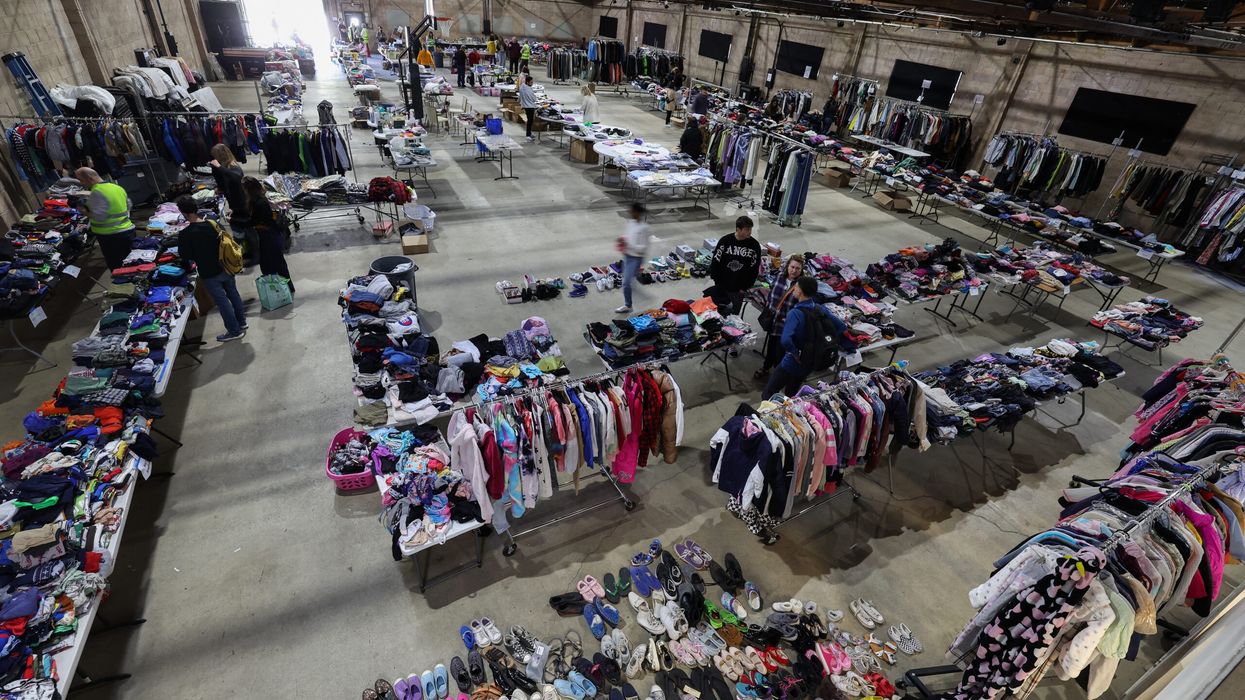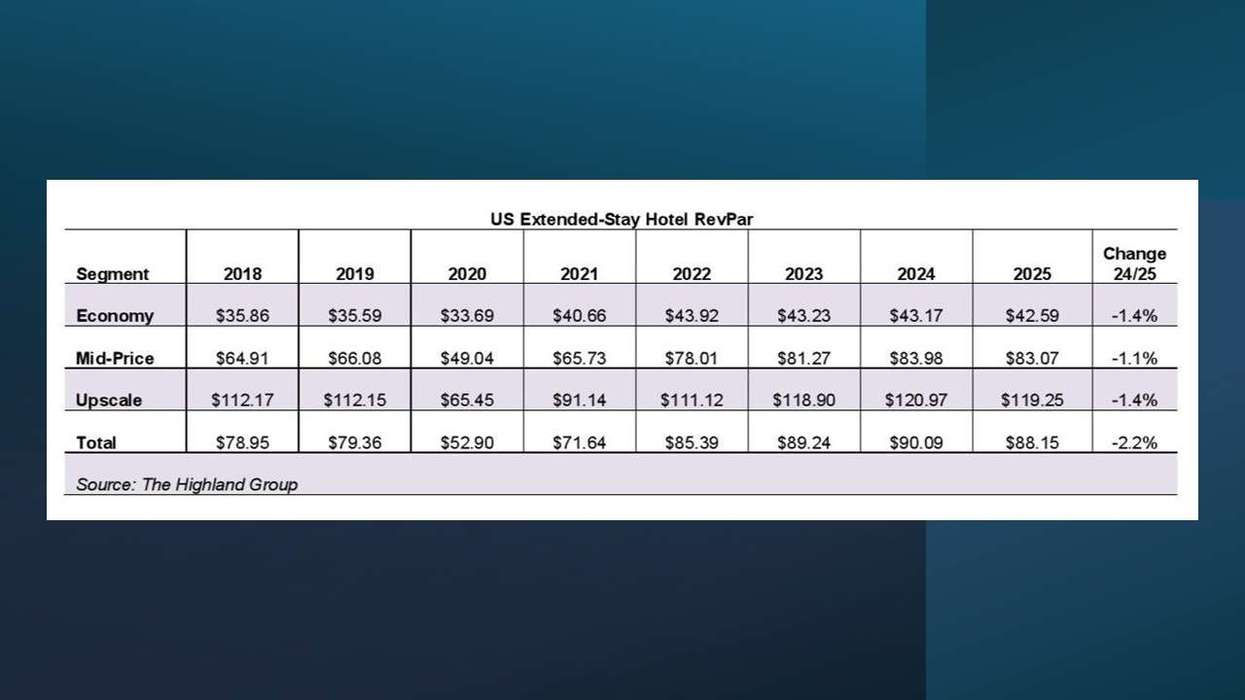LOS ANGELES AREA hotelier Sunil “Sunny” Tolani cut short a visit to Vatican City in order to come home and support his neighbors affected by the recent wildfires that have swept the city. He even had to miss his scheduled meeting with Pope Francis.
“His cardinals and chief of staff understood and will convey our message and greetings,” said Tolani, who is founder and CEO of charity operation The Prince Organization. “That is the right thing to do and the pope will be proud of it.”
Many other members of the hotel industry are working together to support wildfire recovery in Los Angeles County, where fires destroyed thousands of structures and claimed 24 lives. Hotels are offering discounted or complimentary stays to displaced residents and emergency responders.
As of Jan. 13, the Palisades and Eaton fires have caused 24 confirmed deaths. While the total number of structures burned remains unknown, these fires rank among California's most destructive in recent history.
United for the cause
Industry associations, including AAHOA, the American Hotel & Lodging Association, the Hotel Association of Los Angeles and the California Hotel & Lodging Association, have intensified efforts to help victims by organizing donation drives and partnerships to provide essential supplies and aid.
AAHOA’s Charitable Foundation recently launched the "Hope & Haven: California Wildfire Recovery Initiative" to support affected communities through room-night donations, fundraising, and community engagement. AHLA and its foundation are sharing resources from members, partners, and government agencies. Those offering additional support are encouraged to submit details via an online form for member updates.
Miraj Patel, AAHOA chairman, noted that member hoteliers across California are sheltering displaced families.
“True hospitality offers safety, care, and hope, highlighting the compassion and leadership of AAHOA members,” he said.
Anna Blue, AHLA Foundation president, expressed sorrow for the devastation on X, emphasizing the industry's role in providing housing, food, and care.
“My heart is heavy as we witness the devastation caused by the wildfires in California,” she wrote. “To everyone impacted by this tragedy—the individuals and families, the businesses, the brave members of the hotel workforce, the incredible staff and young people we proudly support through our LA-based community impact partners, and our hospitality students and schools—I am holding you close.”
The Hotel Association of Los Angeles maintains an updated list of hotels offering wildfire relief accommodations.
“We are devastated by the destruction of the fires raging across the Los Angeles region,” HALA said. “Hotels are taking in thousands of displaced Angelenos and emergency responders. Many hotels are providing discounted rates, necessities left behind during evacuation, and pet accommodations. We’re also donating bedding and personal care items to temporary shelters. We stand ready to continue assisting Angelenos and first responders.”
HALA also said its members have taken in thousands of evacuees from the Palisades and Eaton fires, often at discounted rates, along with nearby residents seeking better air quality. Many hotels are waiving pet fees or adjusting policies to accept pets, the association said.
Tolani said he’s providing housing to three families who were displaced by the fire and donating his time to help others. He believes the city will recover.
“Despite the heartbreak and frustration, Los Angeles will rebuild,” he said. “Together, we will support those who have lost so much, stand by our first responders and emerge stronger. Americans have always risen to the occasion in times of crisis and this time will be no different.”
The California Hotel & Lodging Association emphasized the importance of addressing community needs while avoiding price gouging within the lodging industry as the state and industry cope with the fire's impact.
Under California Penal Code 396, hotel room prices cannot exceed 10 percent of the pre-disaster rate for 30 days following a disaster emergency declaration. Senate Bill 1363 was enacted to limit rate hikes after natural disasters, capping increases at 10 percent for 30 days while allowing seasonal rate adjustments, contracted rates and increases due to higher costs for goods or labor.
“A violation of this law is a misdemeanor,” the association said. “Penal Code Section 396(g) states: A violation of this section shall constitute an unlawful business practice and an act of unfair competition. We hope this proclamation helps mitigate public safety risks stemming from the fire and windstorm.”
Support in times of crisis
Companies such as Marriott International, Choice Hotels International, Hilton Hotels Corp. and Wyndham Hotels & Resorts have offered support to wildfire victims. These hotel chains are actively contributing to rescue efforts.
“This industry has always been about people—about showing up for communities during the hardest of times,” Blue said. “The resilience, generosity, and compassion of the hospitality workforce are unmatched, and we are proud to see how our industry leads with heart in moments of crisis.”
Marriott is supporting the American Red Cross and World Central Kitchen in responding to the California wildfires. Marriott Bonvoy members can donate points to these organizations, with Marriott matching up to 50 million points through March.
Choice launched a campaign supporting American Red Cross wildfire relief, matching donations from Choice Privileges members up to $25,000. Additional contributions may come from Choice associates through the company’s corporate charity matching program, Choice Gives.
“By matching donations, we hope to amplify the impact of our members' generosity,” said Megan Brumagim, Choice Hotels’ vice president for upscale brands and chief sustainability officer.
To donate Choice Privileges points, visit here.
Hilton Hotels is prioritizing the safety of guests and team members while monitoring the situation. Hilton properties remain open, and modification or cancellation penalties may be waived for stays through Jan. 13. "Our thoughts are with all who have been impacted by the wildfires in Los Angeles County," a spokesperson said.
Wyndham confirmed that most of its hotels in the area are open, accommodating guests, local residents, and relief crews. Many properties have relaxed cancellation policies for travelers modifying their plans.
Airbnb.org, the nonprofit arm of Airbnb, is working with 211 LA to provide free temporary housing in Los Angeles County. These stays are fully funded by Airbnb.org and generous hosts, many of whom offer their homes for free or at a discount through the platform. Vrbo has announced that it will offer refunds to guests needing to cancel reservations, with no penalties to hosts, The New York Times reported.
President Joe Biden has approved a major disaster declaration for Los Angeles County, making federal assistance available to individuals as well as state, tribal, and local governments. Applications for assistance can be submitted at www.disasterassistance.gov or via the FEMA mobile app.






